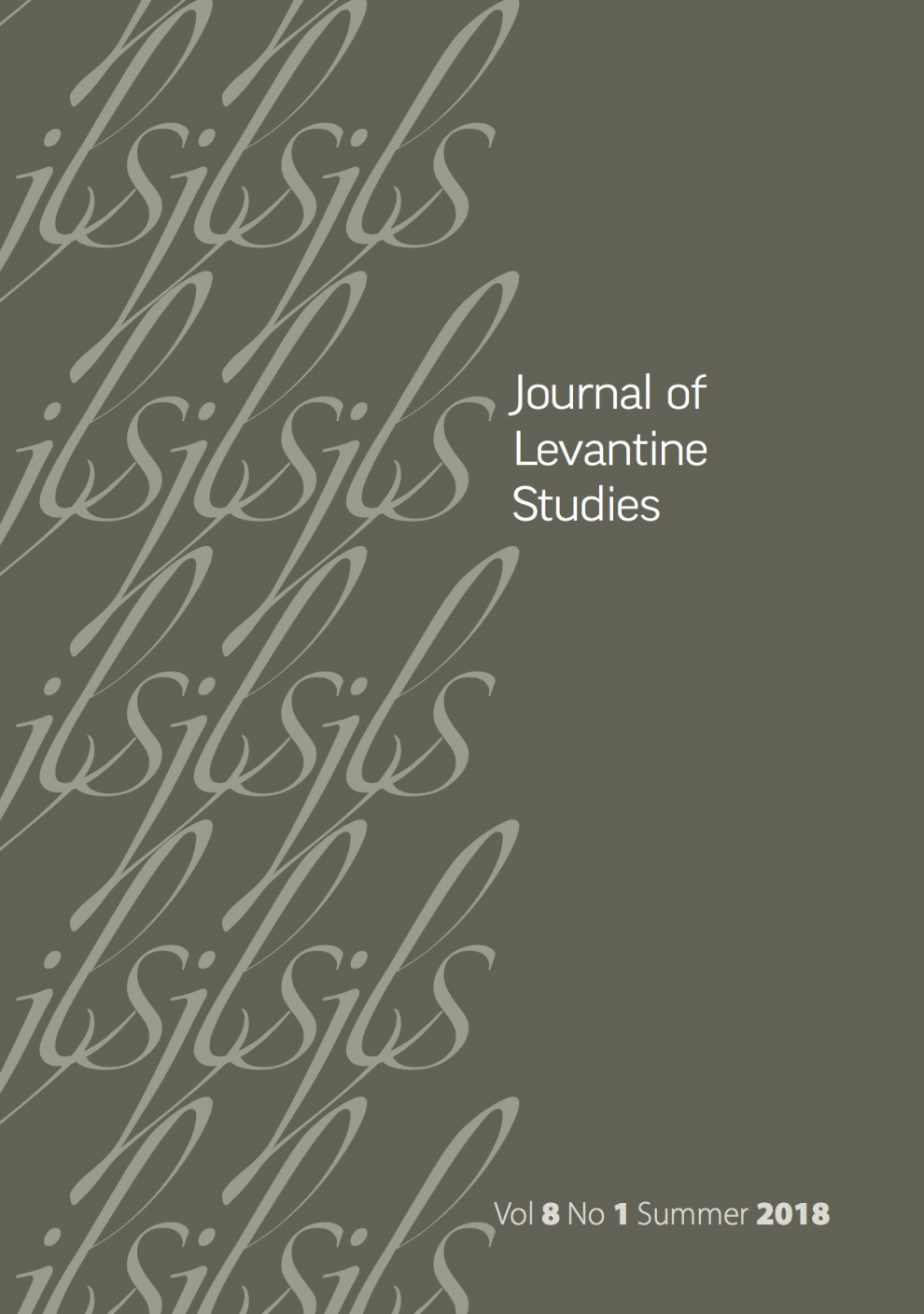Journal of Levantine Studies
Follow us on Facebook!
Unable to display Facebook posts.
Show error
Type: OAuthException
Code: 190
Please refer to our Error Message Reference.
Vol. 8, No. 1: Summer 2018
The Uncertain Legacy of Great War Diplomacy in the Middle East
-
Free download Download
dock-ument aims to promote the theoretical discourse on topics related to various aspects of the Levant and the concept of the Levant, with preference given to personal essays and to lyrical prose. Its purpose is to encourage various perspectives and unique voices so they can be heard in a way that is not confined by the constraints of scientific discussion. The name, dockument, seeks to express the connection between text and context, between the pier, the home dock, and the ship of thoughts and reflections that will sail, we hope, to various interesting places.
- + Articles
-
-
Free download Download
- + Dock-ument
-
dock-ument aims to promote the theoretical discourse on topics related to various aspects of the Levant and the concept of the Levant, with preference given to personal essays and to lyrical prose. Its purpose is to encourage various perspectives and unique voices so they can be heard in a way that is not confined by the constraints of scientific discussion. The name, dockument, seeks to express the connection between text and context, between the pier, the home dock, and the ship of thoughts and reflections that will sail, we hope, to various interesting places.
- + Reviews
-
Journal of Levantine Studies
The Journal of Levantine Studies (JLS) is an interdisciplinary academic journal dedicated to the critical study of the geographical, social, and cultural settings which, in various periods of history, have been known as the “Levant.” The journal is published biannually in English in print and online by the Van Leer Jerusalem Institute.


